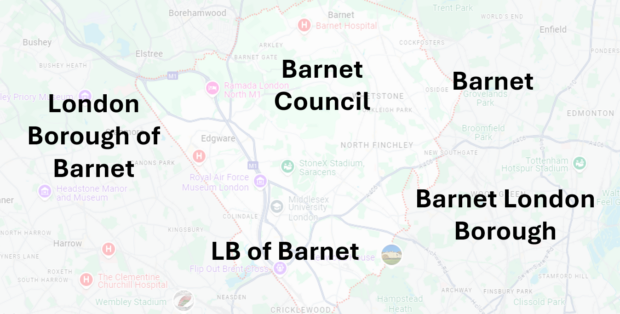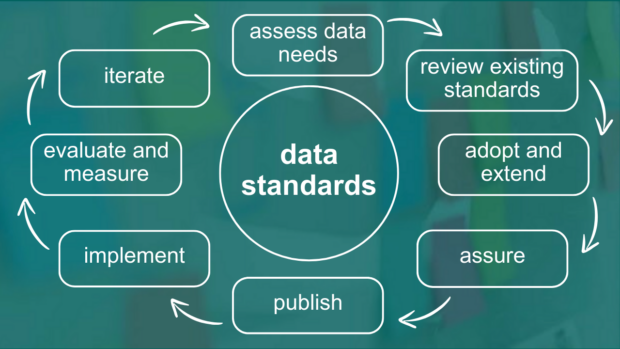Funding Service: Defining data standards for grant teams

Creating reusable standards to improve grant delivery
Data collection in funding is complex, with no two funds collecting the same data in the same way. This causes problems with data consistency and increases the burden on grant recipients who report data for monitoring purposes.
As part of the Ministry of Housing, Communities and Local Government (MHCLG)’s work to simplify the funding landscape, the Funding Service is creating reusable data standards for grant teams.
By establishing data standards for grant funding, our aim is to:
reduce the time taken to onboard funds onto digital services reduce the burden on grant applicants and recipients by ensuring a uniform process across grants improve the consistency and quality of data collectionWe believe that standardising funding data will both benefit grant teams and improve the quality and efficiency of grant delivery across the whole department.
What we set out to do
To help us achieve consistency for grant funding data, we embarked on an 8-week project to:
document existing data standards and identify where the gaps are agree an initial set of standards to define and design explore effective ways of governing and embedding data standards across MHCLGIn this blog post, you can find out about the approach we’ve taken and our progress to date.
Understanding data needs
Before defining any data standards, we first needed to understand grant funding data needs across the department and beyond. We looked at:
what data is collected and by what system what the purpose is for collecting the data and what it is used for what data we need to support the various funding processes how data flows through the systems and processes during the funding lifecycleThis involved speaking to business and grant funding teams in MHCLG, including 10 different teams on finance alone. We then looked at any standards already being used within those teams, wider government departments and across the subject matter in general.
The approach allowed us to compare the data needs against standards already in use and identify any data gaps. It also allowed us to pick the most suitable starting point for the Funding Service’s data standards which could be modified to meet those needs.
Prioritising ‘risk’, ‘organisation’ and ‘financial’ data standards
 Example of inconsistent reference data for organisation name.
Example of inconsistent reference data for organisation name.
We identified three standards to prioritise: risk, organisation and financial data. These were chosen deliberately:
Risk data is a mature subject matter—we have a well-defined and understood definition of it. This allows us to quickly work through the process of how we define standards and how we can replicate that process for future standards Organisation data is used extensively across our digital services and it gave us an opportunity to produce an exemplar of how reference data is used within data standards Financial data is a subject less well researched. We wanted to understand the challenges of producing a complex data standard to test the process of defining data standards we’d already preparedOur data standards design process

Taking a user-centred design approach, we created a blueprint to define the data standards. The cycle include:
assessing data needs reviewing existing standards adopting and extending (to make them relevant to our user needs) assuring and validating standards with users establishing governance and publishing planning and implementing changes monitoring and evaluating use and impact iterating standards based on changes to user needs and policyThe cycle will continue to recur as we test and iterate the grant data standards once they are in use across the department.
Working on the data standards together
Defining data standards is not an individual or even a team activity. For the grant funding data standards to succeed, there needs to be an ongoing collaborative effort between business and policy teams, subject matter experts, and operational and delivery teams. These differing viewpoints help to us give a 360-degree view of data and how it is used within MHCLG. They also provide a level of assurance and confidence that the data standard is well defined.
Similarly, we’ve begun work with data colleagues throughout MHCLG, including the Deputy Prime Minister’s Data Unit and the Chief Data Office, on how we introduce ownership and governance controls into the standards.
What's next and how to get in touch
As we pass through the mid-way point of the project and progress with the definition of our three initial data standards for grant funding, we’re beginning to think about what standards we want to produce next. We will also be putting forward recommendations on how we successfully implement the standards within MHCLG’s digital services.
Subscribe to the MHCLG Digital blog for the latest updates or contact us at
If you are working in a funding service in another government department, you can also join the #funding-services channel on the cross-government Slack.
Note for grant funds delivered by MHCLG
All new and redesigned government funds delivered by MHCLG must use the Funding Service, unless an exemption is agreed when your business case is approved. If you are designing or delivering a fund via MHCLG and are not yet talking to the team about onboarding arrangements, please get in touch at the email address above.
When you subscribe to the blog, we will send you an e-mail when there are new updates on the site so you wouldn't miss them.

Comments